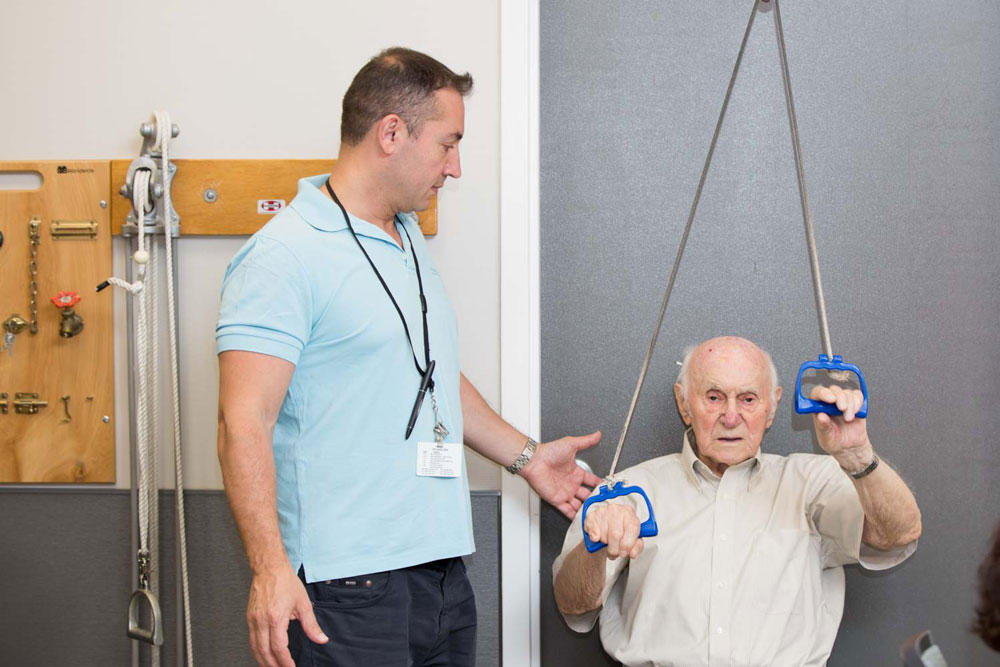Surprising Reasons for Persistent Neck and Shoulder Pain
The neck and shoulders are comprised of several bones, joints, and muscles and are plagued with issues. Often numbness, stiffness, and pain are short-lived, healing with minor self-care, but sometimes the symptoms last longer than expected. So, what causes persistent neck and shoulder pain, and what’s the best way to treat it?
There are a few reasons for chronic issues you may not be aware of. Not knowing the cause of the issue prevents you from properly treating it. You may try using over-the-counter pain relievers, hot or cold packs, or resting the area. Though these remedies may reduce pain temporarily, they don’t treat the actual cause. Without doing so, the pain fluctuates without permanent relief and often becomes worse.

In many cases, physical therapy is recommended for treating continuous soreness in the upper body areas. A physical therapist creates a tailored plan to strengthen muscles and tendons, increase flexibility, and reduce pain. For those located near Queens, NY, Fairview Rehab offers outpatient physical therapy.
Why Is Persistent Neck and Shoulder Pain Not Going Away?
Let’s take a closer look at what’s causing chronic neck and shoulder pain and how treatment helps.
Certain habits may contribute to persistent neck and shoulder pain.
For instance, using too thick or thin pillows causes improper spinal alignment while you sleep.
Another reason might be staring at a computer screen positioned too high or too low. This position forces you to angle your neck.
A lack of movement and sedentary lifestyle do lead to muscle imbalances and strain. When you spend long hours sitting at a desk or engaging in activities that involve poor posture, it can lead to neck and shoulder issues.
Other reasons are injuries or diseases that may also cause pain or other issues in that area.
Failing to alter habits or treat the underlying cause of the pain in the neck or shoulders prevent healing. Bad habits and injuries often cause persistent neck and shoulder pain. Of course, they aren’t the only reason such pain occurs.
What diseases might start with these conditions?
Several diseases may also contribute to such issues, requiring treatment for the medical condition as well as the pain.
- Though more common in the hands, knees, and hips, arthritis is one possible cause of chronic neck and shoulder issues. Osteoarthritis, cervical arthritis, or rheumatoid arthritis often affect these areas. Though incurable, these issues are treatable to reduce pain and other symptoms.
- Adhesive capsulitis, also called frozen shoulder, causes dull, aching pain in the shoulder, making movement difficult.
- Shoulder tendinitis or bursitis cause inflammation in these areas.
- Herniated discs occur when cervical discs shrink and vertebrae move closer to each other, causing damage. The symptoms include pain, numbness, tingling, or burning sensations.
- Head or neck cancer causes pain in these areas, while lung cancer may cause shoulder discomfort.
- Gallstones block ducts in the gallbladder, creating discomfort in the right shoulder and between the shoulder blades.
Though you may want to take it easy when dealing with persistent neck and shoulder pain, you shouldn’t avoid exercise. Physical therapy works the joints and muscles, building strength and improving flexibility. A trained therapist may also recommend TENS, acupuncture, massage, and other therapies, depending on the cause.
Neck and shoulder issues range from mild to severe, depending on the reason for the pain. Unfortunately, even minimal discomfort may persist longer than anticipated. Discuss persistent issues with your doctor to determine the source of the pain and the proper remedy.
Resources:
https://my.clevelandclinic.org/health/symptoms/21179-neck-pain
https://www.health.harvard.edu/pain/ouch-shoulder-pain-and-how-to-treat-it
https://www.mayoclinic.org/diseases-conditions/neck-pain/symptoms-causes/syc-20375581
https://www.mayoclinic.org/diseases-conditions/neck-pain/diagnosis-treatment/drc-20375587
This article contains informational and educational materials and does not replace health or medical advice. For questions or concerns regarding your medical condition or health objectives, speak to a qualified physician or healthcare provider.






Leave A Comment